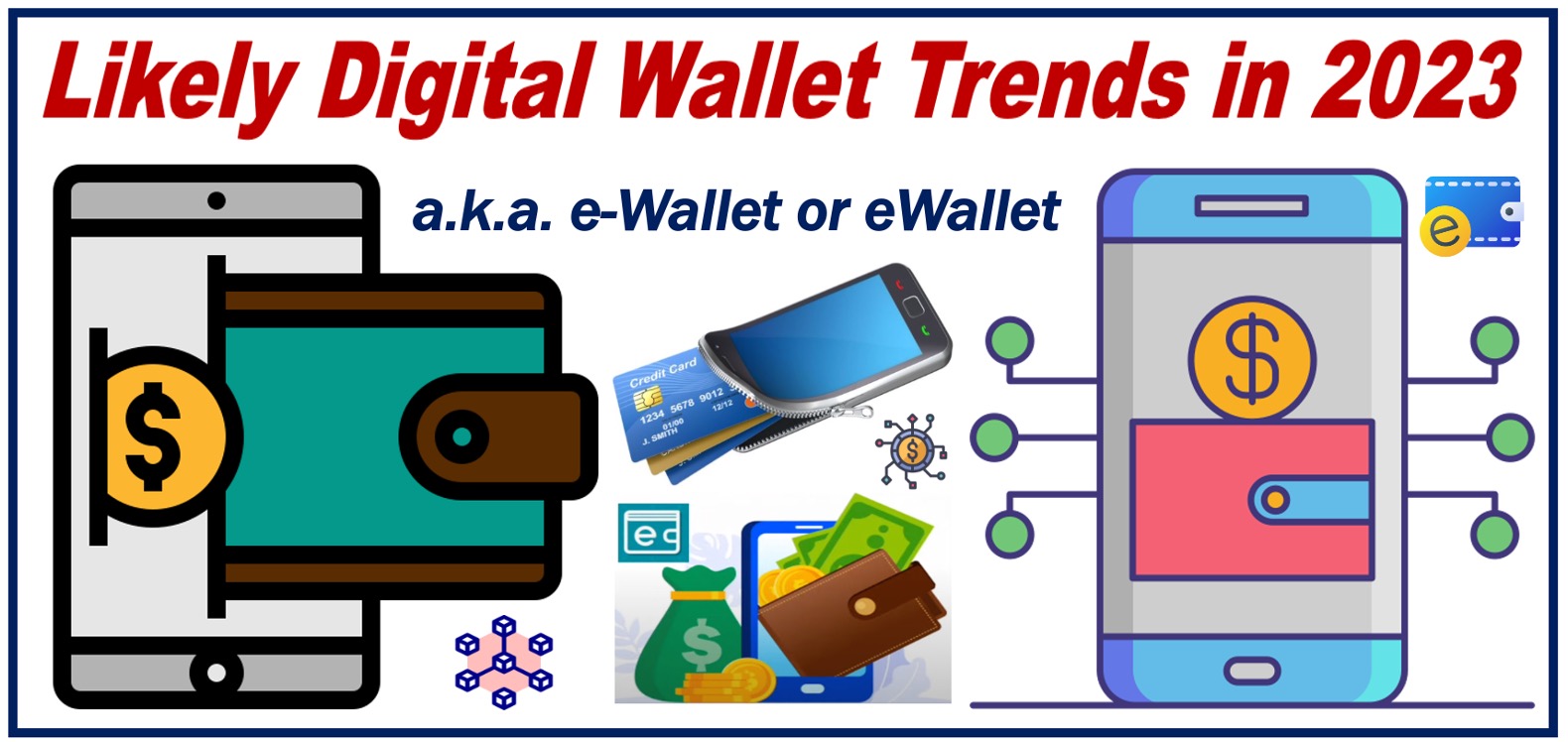Since the advent of cutting-edge payment mechanisms in the late 1990s, the idea of payments has undergone a significant alteration. With each advancement in financial technology, cashless payments have progressed from cards to e-wallets, then from fiat money to cryptocurrencies.
Since the creation of e-wallet services that outlined remedies for the issues with cash and improved payment experiences, the digital currency has gained more prominence than its physical counterpart. According to projections, the market for mobile wallets would grow from $220 billion in 2021 to $970 billion in 2030.

Image created by Market Business News.
NFC (Near Field Communication), banks, fintech firms, digital-only solutions, telecom e-wallet solutions, and other cutting-edge payment technologies will support this enormous increase. Digital wallet innovations have emerged in recent years as a result of the rising need for CBDC (Central Bank Digital Currency) and paperless, cardless, secure payments.
Here are a few of the most important digital wallet innovations that will rule the financial services sector in 2023.
Top Tendencies in E-Wallets to Observe in 2023
-
Growing Popularity of BNPL
Because they offer more accessibility to customers and increase AOV (Average Order Value) for retailers, BNPL (buy now, pay later) solutions have recently become immensely popular. With BNPL, customers may make significant purchases without jeopardizing their monthly spending plan or adding to their credit card debt.
Businesses and merchants can provide this POS (point-of-sale) financing option to give customers more spending power for the products they desire that same day amid uncertain financial circumstances. The contemporary fintech ecosystem is rethinking the loan landscape as a result of the customer-centric strategy.
Due to the availability of installment payment alternatives, which are interest-free and extra-flexible, younger online shoppers favor the BNPL option in their digital wallet solutions. Better brand awareness loyalty and customer retention can also help retailers achieve a competitive edge in their market.
-
The Focus on Payments for Smart Speakers
The popularity of smart speakers and home assistants has increased significantly over time. It enables users to communicate with them, issue commands, and carry out operations like ordering food, booking a cab, and playing TV shows. The greatest benefit of initiating direct payments with voice help for regularly used goods and services such as groceries, products for home care, and commutes, is becoming more and more commonplace among users.
Because of security worries, fewer people are using smart speakers to make payments right now, but this is likely to change over time as security improves. Additionally, IoT payments made possible by smart speakers require customers to approve a payment schedule utilizing sensors and autonomous data sources. For instance, telecom e-wallet systems enable subscription renewal with voice commands on smart speakers.
Smartphone users scan through social networking apps for a sizable portion of their waking hours. It creates a fantastic chance for brands to increase sales. Social shopping is a different method than visiting e-commerce websites to read customer evaluations and descriptions of products. Digital wallets are essential for enabling payment gateways and social purchasing options.
To increase conversion rates, businesses can step up their advertising strategies. While casually cruising around social media, users may effortlessly access companies, desired forms of payment, and customer care.
-
Authentication via a Biometric
Using physical technologies akin to ATMs will presumably soon become standard. The volume of transactions made using digital wallet systems has skyrocketed. As a result, a lot of banks, fintech startups, and important e-wallet platforms are thinking about using biometric authentication for all transactions.
Throughout the prevention of unapproved access to banking information, cards, e-wallets, and other sensitive data, which is hugely important given the constant use of such data in the online world (when buying, booking travel accommodations, betting at betting sites that accept Skrill, etc.), digital wallets can increase security. The business would keep the encrypted coding that defines the biometric data it has acquired, such as the face, fingerprint, palm, or retinal scans. Decentralized identification apps can be used by digital wallets to store and distribute these data points as necessary.
Tens of millions of consumers use blockchain-based cryptocurrency wallets today. Despite market fluctuations, the number of people using cryptocurrency wallets has significantly increased over the last several years. This increase in users can be ascribed to record revenues, low transaction costs, and first-rate security.
Payments made with cryptocurrencies incur a minimal network cost as no third party is needed. A bitcoin wallet transaction does not use actual cash. Instead, it is indicated by the blockchain transaction record and the subsequent adjustment to the wallet balance. In addition, major world governments and central banks are likely to start accepting digital currency as legal tender in the next years.
Adapt to This Rapidly Evolving Digital Financial Ecosystem to Stay Relevant
Expectations of customers and the way financial transactions are conducted have dramatically changed as a result of the introduction of ground-breaking and creative financial technologies in this age of a cashless economy. Solutions for digital wallets have swiftly achieved widespread recognition across markets and industries as the best option for businesses to keep clients.
E-wallets have made great strides, but in the coming years, they will definitely continue to rule the marketplace with their more reliable, effective, and practical variations.




No comments:
Post a Comment